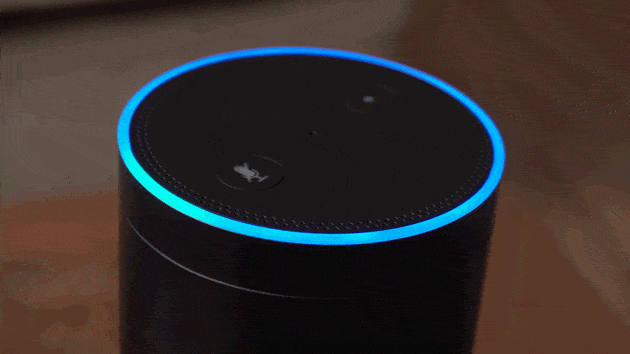AMAZON IS CURRENTLY IN TALKS WITH SEVERAL LARGE CONSUMER PRODUCT COMPANIES IN AMERICA ABOUT ADVERTISING AND SPONSORSHIP OPPORTUNITIES THROUGH ALEXA.
With the rise in talking robots – by which we mean Siri, Cortana and Alexa – quickly becoming part of our everyday lives, it comes as no surprise that Amazon is looking utilise Alexa for product advertisements. This is according to a report on the American news channel CNBC.
Consumer companies, such as Procter & Gamble and Clorox, have been involved in talks.
Procter & Gamble are the world’s leading everyday consumables supplier. They own the likes of Ariel, Febreze, Gillette, Head & Shoulders, Oral B, Pampers and many more. It’s highly likely they stock every cupboard in your house.
Early discussions have centred on whether companies would pay for higher placement if a user searches for a product, such as shampoo. This will work similar to how paid search works on Google and Bing.

With a predicted 50% of searches coming via voice search by 2020, it comes as no surprise that companies are looking to search assistants for product placement.
Advertisers and brands are particularly focused on search placement on Alexa because shoppers are more likely to select a top result recommended by Alexa than on the web, where it’s easy to scroll down or ignore.
While Amazon dominates online shopping, its web advertising business ranks only fifth among US companies, according to eMarketer. It has been predicted that Amazon’s ad sales will grow 42% in 2018 to $2.4 billion, still putting the company behind Google’s $401. billion and Facebook’s $21.6 billion.
We expect this feature to be rolled out in America before finding its way across ‘the pond’ and into UK living rooms.
Capturing Customers Via Voice Search
This news raises an ever increasing difficult question for advertisers and SEO professionals; how do we capture those voice searches?
When a question is asked via voice search, the person will give only one answer. This means that only a ‘positive zero’ result will be read out. This means that it is even more important for your SEO to be the best it can. To best capture those searches, we must look at a conversational style of language.
It’s a good idea to think about what questions people will ask verbally of your service or product. To create the questions people are going to ask about your product or service, you must disconnect your professional brain.
Think about all audience types, not just people similar to you. Type the questions you think people would ask in to a search engine and look at what can be improved. To better understand your customers, read our article on how Google Analytics is the must-have tool.
Then create content that focuses on the longer more conversational search terms and more specific searches. For example, using a standard search someone may search ‘best smartphone’. Using voice search they may ask more specific question as they are expecting a quicker answer. They would therefore ask ‘find me the latest smartphone with the best features’.
